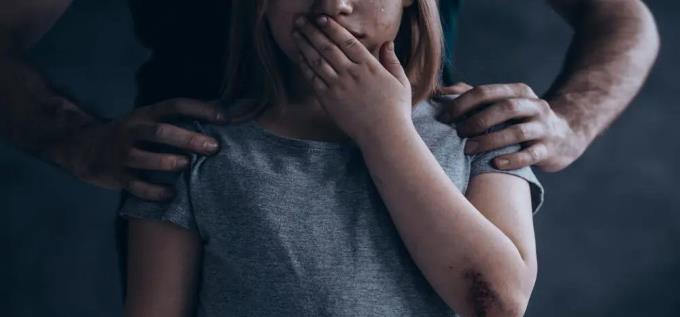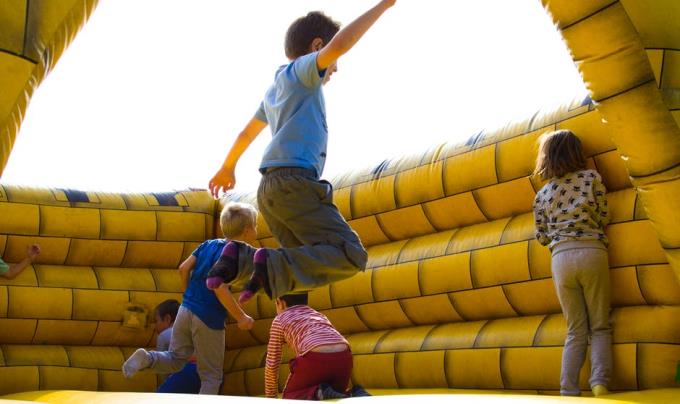Ways to determine an infants caloric needs

Learn how to determine your baby’s caloric needs, including the calories in breast milk and formula, to ensure your infant gets the right nutrition for healthy growth.
No matter how good the school your child attends, school violence can still happen. Therefore, you should learn about the child's symptoms to promptly intervene to protect the child from the damage of this problem.
School bullying is not a new problem, but many parents still objectively think that their child is attending a good school, so school violence cannot happen to their children, until their health and well-being. if your child's decline is too late. In the following article, aFamilyToday Health shares the signs that a child is being bullied at school and its solutions.
School violence is not merely ethical violations, fighting, fighting to resolve conflicts between students. Today, school violence is also a phenomenon that students insult, beat teachers, parents beat teachers, teachers offend students in many ways ...

This is the most recognizable way of bullying because it leaves a mark on your child's body. If you notice that your baby has bruises or abrasions and she cannot clearly answer why they are, there is a high risk that your child is a victim of this type of bullying. Usually, a child who is bullied by peers often does not dare admit that they are bullied for fear of revenge. If your child is younger than his peers, he is most likely the target of an attack by bullying friends.
If your child constantly complains that he has headaches, stomach aches, nausea or doesn't want to go to school, he or she is most likely being bullied and is trying to avoid it. Talk to your child, eliciting them to talk about their friendships at school. This can help you learn more useful information than forcing your child to acknowledge the situation he or she is facing.
Once you have a clear understanding of everything and the children involved, you should talk directly with the homeroom teacher and the parents of those children to come up with an effective way to handle the incident.
This is a form of bullying that causes a lot of emotional damage but is difficult to recognize. This is because this type of bullying has no consequences that you can easily see. A bully will not hesitate to attack your child with indecent laziness as soon as the opportunity arises, such as: he doesn't have friends by his side, no teacher is with him ...
This type of bullying usually targets children who are physically weak, have different looks, and have poor academic abilities compared to other children. Victims of this type of bullying often share common traits: loss of appetite, lack of conversation, lack of confidence, and vulnerability.
If your child is a victim of this type of bullying, you should teach your child to respond in an adult's way. You help your children feel more confident by teaching them that no one has the right to offend others and that no one should be offended. Teach your child to look the bully in the eye and say, "You can't offend yourself", "Don't make fun of others, you'd better go somewhere else to play" ...
Victims of this type of bullying often have to play alone. Because the person isolating the baby is often strong enough to persuade other children to act like her.
If your child is often alone, without friends, or never talks about playing with his friends at school, he may be the victim of this type of bullying. Babies tend to curl up, very afraid to contact people who are not family members.
Take time to talk with your children, evoke the problems in them. From there will help you have an effective solution. Consider transferring your child's school. In addition, you should sign up for your child to participate in extracurricular activities such as swimming lessons, learning to play an instrument, learning to act, Scout classes ... so that your child has other relationships outside of school.
Cyberbullying is a new type of bullying, but it is no stranger to the current information boom. This type of bullying only occurs in the virtual world through applications: social networks, email ... but causes the victim to suffer a lot of psychological influence. The method of this type of bullying is often to spread bad rumors, humiliate or sarcasm, slander ... the subject is bullied.
The general psychological characteristics of children being bullied on the Internet are:
Sleep late or have difficulty sleeping, even sleepless
Spend a lot of time on social media but then you seem sad and depressed
Lock all accounts on social networks
Find a way that no one can touch your computer or phone.
If your child is the victim of cyberbullying, you should find a way to keep all the content and evidence of bullying. After that, you can ask the school to help resolve the matter, if serious, you can ask the police to step in.
To reduce the risk of your child being bullied online, limit your child's time to surf the Internet. In addition, you should find out if the websites your children visit often, try using them to check the level of safety for children. Set up customizations to better suit your child so they can be safer in the virtual world.
In addition, the fact that children play violent games online causes many harms that you do not expect. Please refer to article 3 the unexpected harms of violent video games on young children for more helpful information.
Blackmail and harassment in school are not new problems and can happen in any school. This kind of school violence is dull and has negative consequences for both the victim and the perpetrator. And sometimes the kids who get blackmailed and exploited become bullies of their own friends.
Exploitation and extortion take place in many forms such as: rape, extortion or extortion in the form of "toilet protection", "paying them money", "asking for money", "borrowing" but not ever pay ...
The victims are often sick, shy, or afraid, lack of confidence, and have poor education. When being bullied, children can easily fall into a state of anxiety and fear. To have money for you, many babies do not hesitate to become thieves in their own house. If being exploited for a long time, children can easily lose faith in life, fear, and depression. From there, it can arise acts of resistance, harm others or fall into addiction, even suicide.
Because children do not know how to protect themselves by sharing with their parents, teachers and other adults the problems they are facing. If you notice that your child shows signs of suspicion, take a moment to talk to him, eliciting them to talk about things. You should not scold or accuse your child, but emphasize to them that what you want to do is just stop the situation they are experiencing. After that, you should talk frankly with the homeroom teacher, administrators and related parents to have a specific and effective way to handle the problem.

If your child is in puberty , school violence can happen to your child. The child attacker will use forms such as: commenting on the child's body, teasing the child with vulgar words, peeping, or even taking pictures or trying to touch the child. In addition, a bully can spread sensitive images of their children (if any) on social networking sites or force their children to listen and look at pornography.
In some cases, bullying in the form of sexual assault also includes sexual harassment, in which offenders can be prosecuted. Most victims of this violence are girls, but boys are no exception.
Some of the signs you can recognize that your baby is a victim of this school violence are: Babies are uncomfortable, even afraid of the opposite sex, change in dress habits, signs of depression. .
If your child is the victim of a school sexual assault, do not criticize or blame your child such as: your child's dress habits or their attitudes towards the opposite sex ... Emphasize what was It is not my fault that happens to me, it is the one who made it to me. Next, you should talk to your homeroom teacher, school administrator representative, child attacker, and their parents to sort things out. If the incident is serious, take your child to the hospital to be examined and confirmed, and at the same time notify the police for investigation and handling.
School bullying has many causes:
A group of children hate an individual because of differences in personality or appearance or academic performance. Or simply because the baby is weaker, less confident than the friends around.
Sometimes, children bully other children to overcome the discomfort, hostility caused by someone. For example: parents, siblings ... often scold or beat the child.
In addition, many studies also show that individuals who regularly abuse others in the same situation must live in a family where parents or members often have conflicts and quarrels.
It is not uncommon for you to fear that your child will suffer from school violence because it is quite common today. Signs of children that show they are suffering heavy consequences from acts of violence include:
Do not want to talk about things at school
Fear of going to school
Signs of depression are becoming more pronounced: School violence has been and is causing particularly serious psychological trauma to students.
Learning outcome goes down
Don't like talking about your friends
You can see on young people there are wounds and scratches when the children come home from school
Go home with clothes not intact and personal belongings damaged
Babies often say they have headaches, stomach pain or trouble sleeping
Changes in eating habits
Become shy and lack confidence.
In addition to the consequences outlined above, babies bullied as children are 4.3 times more likely to develop anxiety disorders, 14.5 times more panic, and depression. 4.8 times higher than other children as an adult.

Even though you find yourself doing a great job educating your child, you still can't understand why the child becomes a bully. Don't be surprised, this is perfectly normal and there are a few things you can do to prevent school violence:
Sometimes children get angry with their parents because things do not comply with their wishes and let emotions completely dominate the actions. At this point, teach your child how to control emotions as well as think positive things. Adults can also use themselves as an example when you are angry, tell your baby: “Right now, you are feeling very angry, so you need to go out for a while. to calm down ”. This way, your child will gradually learn to control emotions from you.
When the baby is a child, let him play with many different friends. These children may differ in family background, religion, physicality ... but will help them develop social skills. Children have a chance to understand that everyone is different and that they need to respect that. Young children often like to bully people who are different from them. With the above method, children will no longer see their friends different from them.
Many parents often say to their children, "You just need to do well in school." The fact is that in addition to learning, children should learn other things like: how to treat people, to know to help others ... To do this, you can assign children to do chores single simplify and remember that you need to treat your children like adults, not kids. In this way, the baby will feel very important and learn to be responsible for his actions.
Raising children becomes easier when children know what their parents think and vice versa. Let your baby speak about his feelings. To do this, you should talk to your child more. This may not work, but over time you can teach your child what honesty, fairness, and courtesy are.
Giving your child a chance to talk will help him share his experiences during the day. This helps the baby feel more comfortable and doesn't need to release emotions by bullying other friends.
Sometimes, adults need to take drastic action to protect their children, not let them face everything or let things drift. If you have done everything but your child is still bullying your friends, talk to your homeroom teacher to find out the best solution for your child and others. If not, you can also seek advice from a psychologist.
Here are some measures parents should know to protect their children against the unpredictable risks above.
Every day, parents should take the time to care and ask them about what happened at school or in relationships with other children to grasp the situation. Parents should choose a quiet time and ask open-ended questions such as “what do you do during recess today? Which friends do you play with? ”,“ Is there anything fun going to school today? ”… Thereby, you can guess the situation where your child will be bullied or not.
Parents can recognize their children being bullied when they see some signs such as torn clothes, lost belongings, asking for extra snacks, dropping out of school or not going to school because of fear of someone. These are signs that your child may be being bullied that parents should pay close attention to. In addition, when being bullied, your baby can take a number of reasons such as headaches, stomachaches or stress to stay at home. Some signs, such as anger, sadness, insomnia or bed wetness, also need to be noticed.
An effective and safe way when a child is being bullied is for parents to contact and notify the school about their child's condition for support and assistance. If this situation persists, you need to find a way to collect information from the bullies and send it to the school so that the school can discipline and notify all children on alert.
When a baby is bullied, his or her self-esteem may be hurt. More than ever, you need mental encouragement and reassurance. Let your children know that they are always there and love them. If you have ever been bullied or know people in similar situations, tell a story to your child so they can feel sympathy and share.
It is normal for children to go to school, play with friends, and have small conflicts. However, if your child is often bullied by peers and affects his psychology and academic performance, you need to take great care of him. Because sometimes, just the small stumbles in childhood can leave wounds that cannot be healed even in adulthood.
Learn how to determine your baby’s caloric needs, including the calories in breast milk and formula, to ensure your infant gets the right nutrition for healthy growth.
Discover the top 5 smartest dog breeds in the world, including Border Collie, Poodle, German Shepherd, Golden Retriever, and Doberman Pinscher. Learn about their unique traits and why they are considered the most intelligent dogs.
Discover 7 nutritious and delicious ways to cook egg porridge for babies, including recipes with cheese, pumpkin, tomato, and more. Learn how to prepare baby-friendly egg porridge with our expert tips.
After a series of medical measures they obtained a complete human vascular system profile.
Watermelon is one of the fruits that many people love, not only cheap but also delicious, nutritious and refreshing in the summer. To get delicious watermelon pieces, show off your housewives, your artistic talents to cut beautiful pieces of watermelon.
aFamilyToday Health - The digestive system and body in each baby is different. Parents need to recognize notes to deal with when babies have a food allergy!
Babies need many factors for perfect development. aFamilyToday Health shares with parents things to keep in mind when babies are 8 weeks old so that parents can take care of their babies the best!
Babies need many factors for perfect development. aFamilyToday Health shares with parents things to keep in mind when babies are 18 weeks so that parents can take care of their babies the best!
Babies need many factors for perfect development. aFamilyToday Health shares with parents things to keep in mind when babies are 28 weeks old so that parents can take care of their babies the best!
Babies need many factors for perfect development. aFamilyToday Health shares with parents things to keep in mind when babies are 32 weeks old so that parents can take care of their babies the best!








